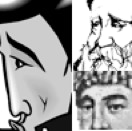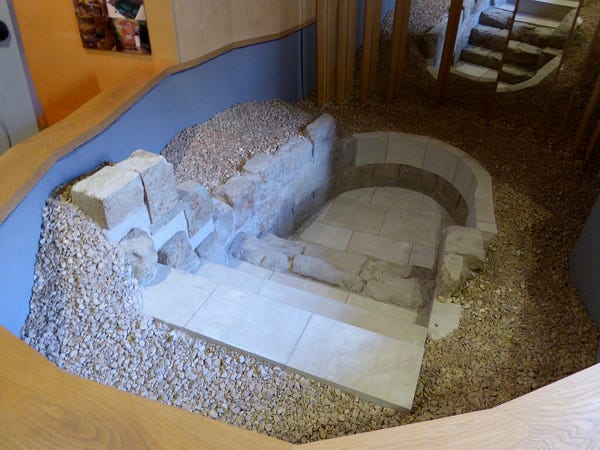
RASHI, RAMBAM and RAMALAMADINGDONG
A Quizbook of Jewish Trivia Facts & Fun

A Quizbook of Jewish Trivia Facts & Fun
We recently wrote a trivia question about a mikveh strike, wherein some women are refusing to go to the mikveh at the end of their monthly period in protest of an Orthodox man who refuses to grant his wife a divorce. Because a man cannot engage in marital relations with his wife until she has participated in this purification ritual, the strikers hope to encourage men to bring pressure on the divorce-refusing husband. The use of the mikveh has been a part of Jewish tradition at least since the first century BCE. The mikveh bath must be filled with “living waters,” such as rainwater or water from a flowing spring. Tap water is not acceptable on its own, but some allow the use of tap water in addition to living water if there is an insufficient quantity of living water. Recently, a Rabbi facing a shortage of living water devised what plan to assure sufficient water for the local mikveh?
Mikveh from Milk Street, London by Ethan Doyle White is licensed under CC BY-SA 4.0 DEED via Wikimedia Commons
A. The mikveh is located in Maine, and the local Rabbi arranged for volunteers to visit a frozen lake, cut out huge blocks of the ice, and then transport them to the mikveh, where they melted and filled the ritual bath.
B. A mikveh located in southern California had depended on rain water until the quantity of rain dropped dramatically, leaving the mikveh with an insufficient amount of living water. The Rabbi contacted neighbors in a square mile perimeter of the mikveh and arranged to install pipes running from dozens of gutter drains to the mikveh, so that they could capture enough water, even during a small rain shower.
C. A Rabbi in Beersheba, located in the Negev desert in Israel, hired a company to seed the clouds in the area of the mikveh, to enhance the amount of rainfall, thus yielding a sufficient amount of living water for the mikveh to operate.
D. A synagogue in Houston found itself without sufficient water for its mikveh, due to the drying up of the local spring which had been their source of water. The Rabbi reached out to donors who paid for water to be trucked in from a river in the Smoky Mountains near Knoxville, thus enabling the mikveh to remain open.
E. A Rabbi in Crown Heights, Brooklyn, arranged for a screening of the movie Love Story. The showing was free, but all attendees had to attach cups to their faces to capture their tears as Ali MacGraw’s character Jenny Cavilleri passed away in the arms of Oliver Barrett IV, played by Ryan O’Neal. Because the tears were flowing, they were considered acceptable for use in a mikveh. The cups were collected and the tears were desalinated utilizing technology from an Israeli engineering company, and participants all received badges for participating which read, “Love means never having to skip the mikveh.”
✡ ✡ ✡ ✡ ✡ ✡ ✡ ✡ ✡

© 2025 MMJZ Services, Inc.